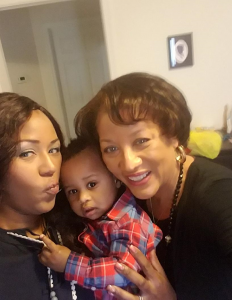The demands of raising an infant rival’s a hospital intensive care. Monitoring and surveillance 24/7.

We go through changes in mothering throughout the age set transitions of our children as well as our mothers. Demands of raising an infant rival hospital intensive care. Monitoring and surveillance 24/7. Growth spurts of toddlers and adolescents are barely a step down from intensive care. These are critical times when our children are beginning to navigate the physical world as toddlers and the larger community as adolescents. Throughout school-age our children have their school community as part of their “Village” to help in their education and development. When our children enter adulthood this system of support disintegrates rather quickly. Unless they go to college, which gives a temporary bridge of support. But even then, our young people often feel isolated and alone.
Our relationships with our mothers change in adulthood. Mothering our adult children changes significantly as well.

Often our daughters to try to differentiate themselves from us, as we did from our mothers. I was a rambunctious rebellious teenager. As I dealt with my rambunctious rebellious teenage son, my mother would laugh and say “God has a sense of humor.” Our relationships with our mothers change in adulthood. Mothering our adult children changes significantly as well. How can we sustain a connection with our adult children as well as nurture their outreach to the other members in their community for support, guidance, and fellowship? This is a good time to begin the active process of Self-Mothering. To develop a Council of Women to assist us as we continue the challenges of life’s transitions including career, marriage, motherhood, volunteer work, spiritual life, social life, family and home life.
As our mothers age, we daughters can become the “mothers” to our aging mothers. Often this role reversal is difficult.

Women moving through middle to retirement age may be dealing with changes of empty nests, relationships, menopause, health and financial challenges, and aging parents. As our mothers age, we daughters can become the “mothers” to our aging mothers. Often this role reversal is difficult. It is helpful to have empathy but also to set limits and boundaries as we’ve done with our children. Being a caregiver to a parent can be both meaningful and burdening. We should always look for support for their care and respite for our self-care. Our Self-Mothering Network may have tools and reference to assist us along the way.
Daughters dealing with our mothers passing can affect us in many different ways.

As our mothers are approaching their final transition we become keenly aware of our own mortality. Daughters dealing with our mothers passing can affect us in many different ways. It can be more challenging or easier based on the quality of our relationship. We can still heal our relationships with loved ones that have passed from this plane. And we can still tap into our mother’s spirit once they are in the ancestral plane.
Grieving rituals can be very important for moving forward to let go of the burdens of the past and relish the memories that empower.

Grieving rituals can be very important for moving forward to let go of the burdens of the past and relish the memories that empower. Gathering a Circle of Mothers throughout our lifetime keeps us empowered on our journey and supported for our self-care. My book Self-Mothering: My Mothers’ Council reveals how I healed my Mother Daughter relationship with my biological mother through Self-Mothering and how celebrating her life in a ritual assisted my growth and joy.


